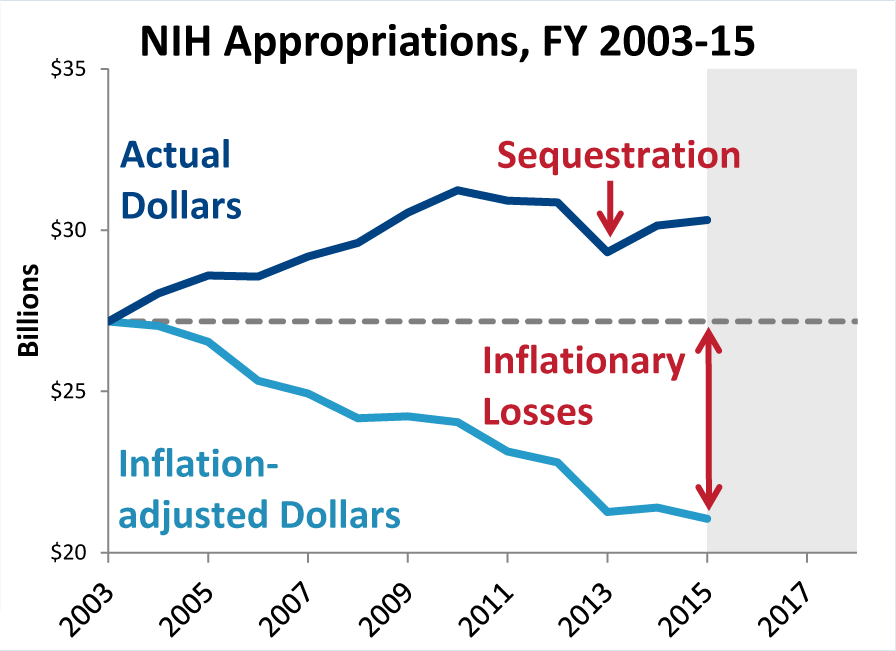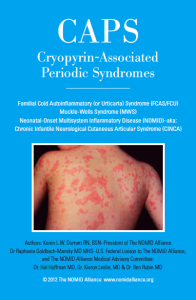Below are links to helpful research and information TNF receptor-associated periodic syndrome (TRAPS) symptoms and treatment. These are not all the studies available. For more search Pubmed.gov.
On-demand treatment with anakinra: a treatment option for selected TRAPS patients. – On-demand use of Kineret refers to using this medication only during flares to shorted the flare and relieve symptoms. This is a case study of two TRAPS patients in which on-demand anakinra treatment was successful.
The phenotype of TNF receptor-associated autoinflammatory syndrome (TRAPS) at presentation: a series of 158 cases from the Eurofever/EUROTRAPS international registry. As of 2013 this is the largest TRAPS study.
The most recent advances in pathophysiology and management of tumour necrosis factor receptor-associated periodic syndrome (TRAPS): personal experience and literature review. “Thanks to a better understanding of its pathogenesis, the disease is now managed with anti-interleukin (IL)-1 antagonists, rather than corticosteroids or tumour necrosis factor (TNF) inhibitors.”
Different presentations in patients with tumor necrosis factor receptor-associated periodic syndrome mutations: report of two cases. “We report two children, one with a severe mutation in the TNFRSF1A gene causing the typical phenotype. The second patient had a homozygous R92Q-type mutation and displayed a periodic fever with aphthous stomatitis, pharyngitis and adenitis (PFAPA) syndrome-like phenotype.”
Tumor necrosis factor receptor-associated periodic syndrome – NIH Reference Page on TRAPS
Tumour necrosis factor receptor-associated periodic syndrome – A good and thorough synopsis of TRAPS that’s fairly easy to read and understand by the New Zealand Dermatological Society
Hereditary Periodic Fever Syndromes – Written by Dr. Kastner, this covers FMF, TRAPS, HIDS, NOMID. Explains differences between TRAPS and the other similar syndromes.
Rash Pattern and Duration Distinguish Hereditary Periodic Fever Syndromes – By Dr. Kastner. Explains the differences in rashes of TRAPS, HIDS, FMF, and CAPS. The TRAPS rash is migratory.
Autoinflammatory syndromes: Fever is not always a sign of infection – From Doctors Zeft and Spalding at the Cleveland Clinic. Good diagrams of the biological pathways of TRAPS, Blau, CAPS, FMF, HIDS, and PAPA. Differences between TRAPS and FMF or HIDS are discussed.
Dramatic Improvement Following Interleukin 1ß Blockade in Tumor Necrosis Factor Receptor-1-Associated Syndrome (TRAPS) Resistant to Anti-TNF-α Therapy – Anakinra case study
Autoinflammatory syndromes: diagnosis and management – a good synopsis of FMF, HIDS, TRAPS, CAPS, Blau Syndrome, PAPA Syndrome, PFAPA, and Majeed’s Syndrome. Gives information on differences in the diseases and best treatments as of 2010.
The autoinflammatory diseases – Published in 2012, this also covers FMF, MVK Deficiency (HIDS), TRAPS, CAPS, NLRP 12 mutations, Blau Syndrome, PAPA Syndrome, Majeed’s, DIRA, and PFAPA.
The Expanding Spectrum of Systemic Autoinflammatory Diseases: Misadventures in the Genomics of Inflammation – More information on the different fever disorders. From a lecture given by Dr. Kastner, has lots of details on individual cases.
Novartis data show ACZ885 delivered rapid and strong symptom relief while reducing frequency of attacks in two periodic fever syndromes – Ilaris phase 2 study results for TRAPS and FMF
Multiple sclerosis and the TNFRSF1A R92Q mutation: clinical characteristics of 21 cases.
“Periodic fever” without fever: two cases of non‐febrile TRAPS with mutations in the TNFRSF1A gene presenting with episodes of inflammation or monosymptomatic amyloidosis – “TRAPS associated mutations can induce considerable inflammation that is not necessarily accompanied by fever.”
Falling into TRAPS – receptor misfolding in the TNF receptor 1-associated periodic fever syndrome– Info on the biological pathway of TRAPS with diagrams and the different mutations.
Clinical Immunology Review Series: An approach to the patient with a periodic fever syndrome – Covers FMF, TRAPS, HIDS, CAPS, DIRA, PAPA, BLAU, PFAPA, and Schnitzeler’s
Role of tumour necrosis factor (TNF)-α and TNFRSF1A R92Q mutation in the pathogenesis of TNF receptor-associated periodic syndrome and multiple sclerosis – information on the R92Q and it’s association with MS and information on why this and the P46L mutation sometimes causes disease.
Long-Term Clinical Profile of Children With the Low-Penetrance R92Q Mutation of the TNFRSF1A Gene – “Although some cases may progress to a more chronic disease course, the majority of children with an R92Q mutation of the TNFRSFA1 gene show a milder disease course than that in children with TNFRSFA1 structural mutations and have a high rate of spontaneous resolution and amelioration of the recurrent fever episodes.






